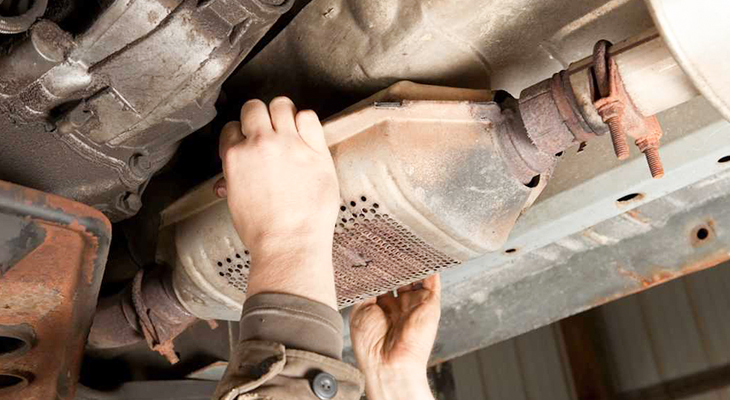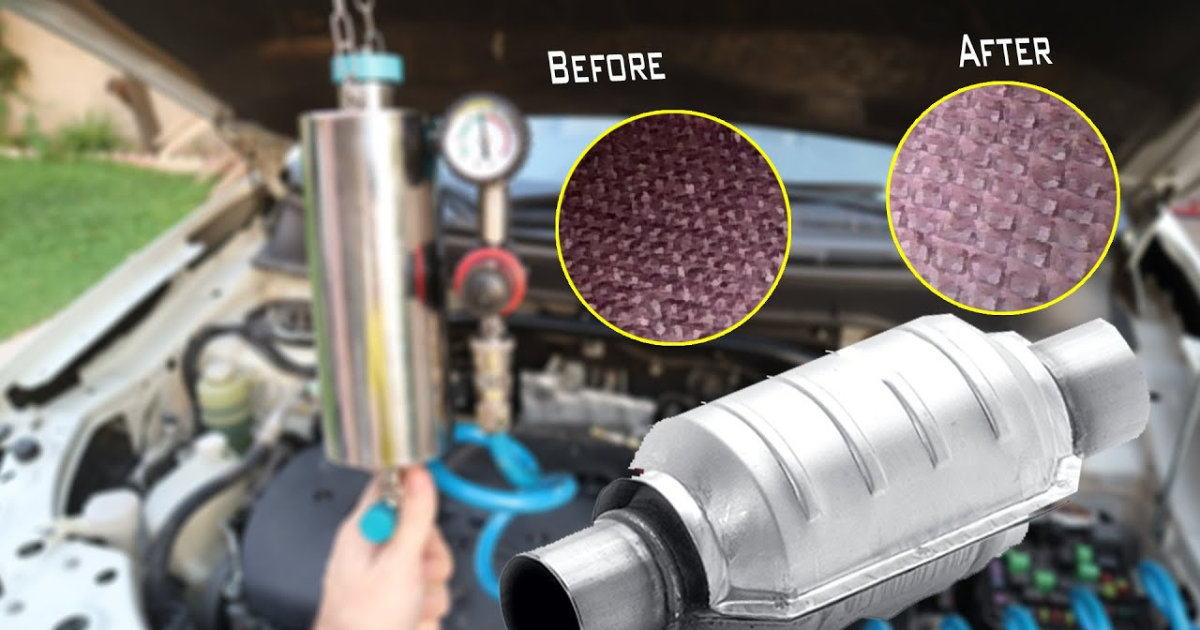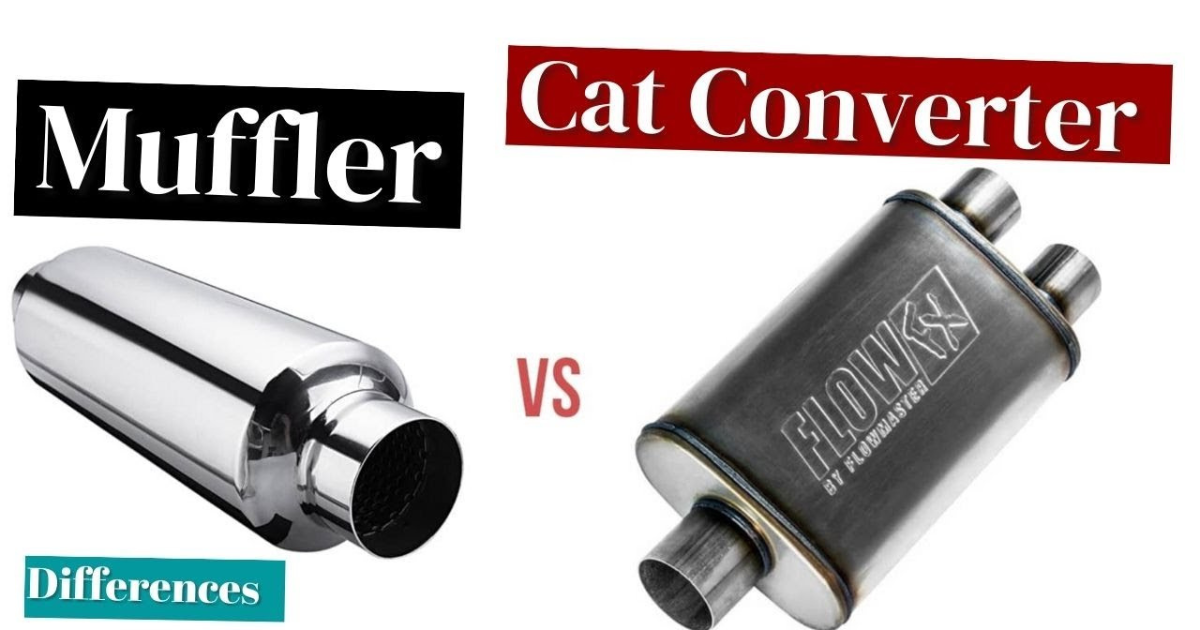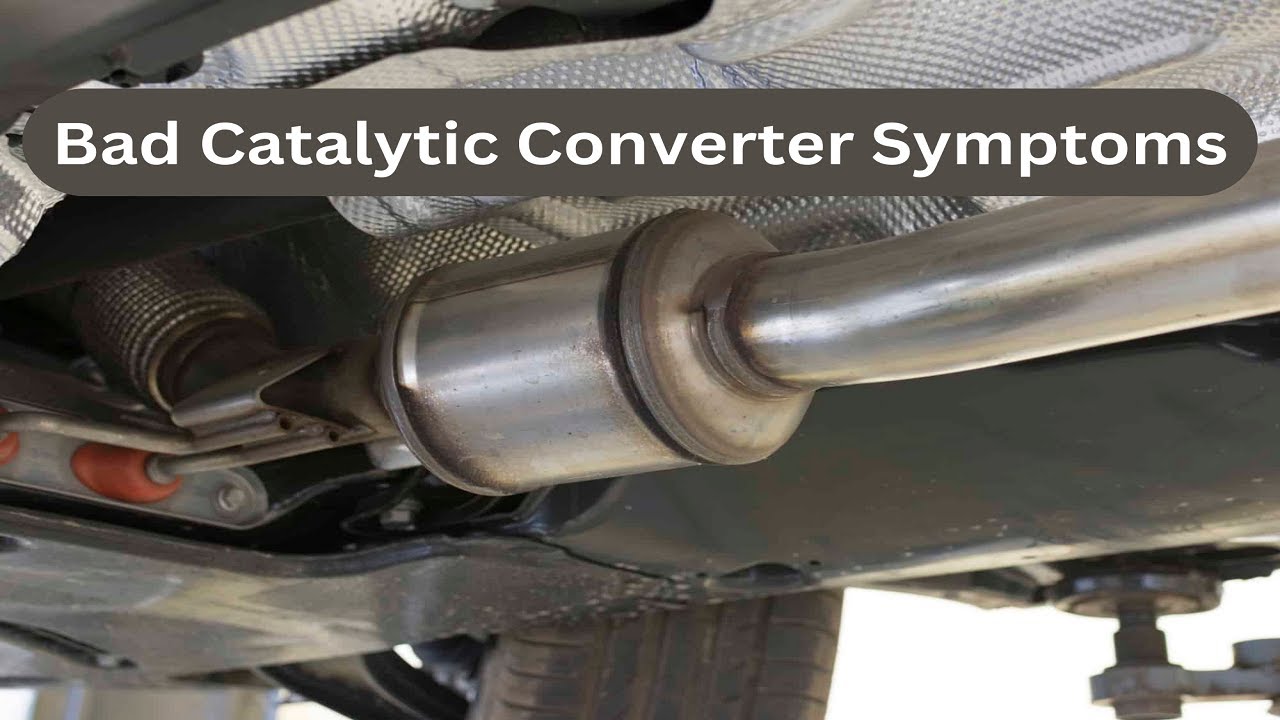Catalytic converters are crucial to vehicle exhaust. It helps neutralize vehicle emissions like carbon monoxide. Damaged catalytic converters pollute the air, reduce vehicle mileage, and harm exhaust system components. Note any issues and have the converter repaired promptly. Thus, knowing the signs, causes, and solutions of a malfunctioning catalytic converter is vital.
Symptoms of Bad Catalytic Converter

Running the vehicle releases harmful gasses that pass through the catalytic converter. The converter has a honeycomb interior. It contains rhodium, palladium, and platinum. For 800°F temperatures, the converter is designed.
Chemical processes neutralize automobile exhaust gases into carbon dioxide, water, and oxygen. These clean particles exit the vehicle through the muffler. Below are ways to identify a bad catalytic converter:
Misfiring Engine
A faulty catalytic converter causes engine misfires. It indicates catalytic converter overheating. The inefficient catalytic converter implies that the cylinder combustion process is incomplete.
Rotten Egg Exhaust Odor
A peculiar car smell indicates catalytic converter failure. It may suggest internal concerns. A rotten egg smell implies a catalytic converter failure. Sulfate fuel smells like rotten eggs. Converters turn sulfate into odorless gasses.
Thus, a bad catalytic converter makes fuel smell like rotten eggs.
Check-Engine Light
Vehicles’ internal computers use the check engine light to indicate problems. A faulty catalytic converter alters the fuel-air ratio, releasing hazardous pollutants.
When the check engine light comes on, the converter is bad. Other engine issues can cause the engine light to illuminate. Getting a mechanic to diagnose the issue is wise.
Vehicle Starting Issues
The clogged exhaust might cause car starting issues. A clogged catalytic converter does not reduce car emissions. The converter holds harmful gases in the engine, increasing exhaust pressure. Later, the engine stalls or sputters, making starting difficult.
Reduced Fuel Economy
Clogged catalytic converters restrict airflow, making the engine consume more fuel. Due to weak acceleration. Due to acceleration issues, low exhaust flow makes you press the gas pedal harder. Due to increased fuel injection, the engine produces a richer fuel mixture than needed.
Poor Acceleration
Due to unburned gasoline heat, internal parts can melt and block. The engine performs best with excellent exhaust flow. A blocked converter lowers flow, lowering engine power when accelerating, towing, or climbing.
Rattling sounds
Weird car sounds indicate internal issues. Therefore, how does a bad catalytic converter sound? A defective catalytic converter rattles under the car whether moving or idle. Starting the car makes more noise.
Excess heat or converter damage fractures honeycomb materials, causing rattling. Have a mechanic inspect the automobile if you notice weird sounds. If diagnosed, replace the catalytic converter to prevent further damage.
Causes of a Bad Catalytic Converter
Let us now discuss the causes of bad catalytic converters:
Inadequate Engine Upkeep
As mentioned before, damaged engines cause most catalytic converter concerns. Engines need maintenance. Poor valve guides, rings, and cylinder walls cause oil to burn in old engines.
burning oil produces converter-damaging products. Incorrect timing and fuel/air combination also cause catalytic converter failure. These circumstances destroy our converter and other engine parts.
Leaking Coolant
Leaking combustion chamber coolant or antifreeze might be dangerous. Leaks usually result from blown head gaskets. Leaks in the exhaust system clog the catalytic converter, eliminating its efficiency.
Soot and thick carbon from exhaust coolant block converter honeycomb air channels. This hinders the catalytic converter from removing hazardous exhaust fumes. It also plugs ceramic catalyst pores, slowing exhaust flow and causing back pressure.
Poor Spark Plug Wires or Plugs
Failure of spark plugs or wires can also damage a catalytic converter. Misfiring plugs force unburned duel into the exhaust system. The honeycomb melts when unburned gasoline ignites.
Short Trips
Short drives don’t heat the catalytic converter enough to burn hydrocarbons. This would eventually jam the catalytic converter. Drive your car longer to heat the converter and burn the deposit buildup.
Oxygen Sensor Failure
A defective oxygen sensor gives the car’s computer incorrect exhaust gas measurements. These readings lead to poor fuel-air mixture. Rich mixtures send unburned fuel to the converter. The vehicle fails an emissions test because the converter cannot convert hydrocarbons to safe elements in a lean mixture.





